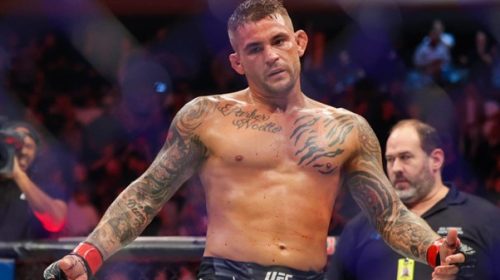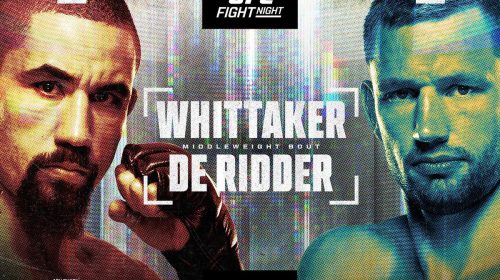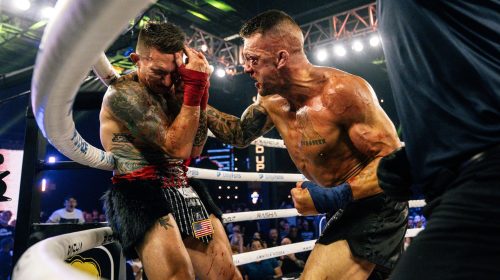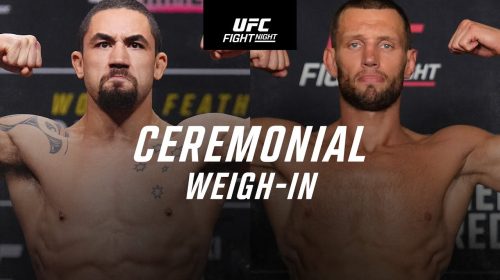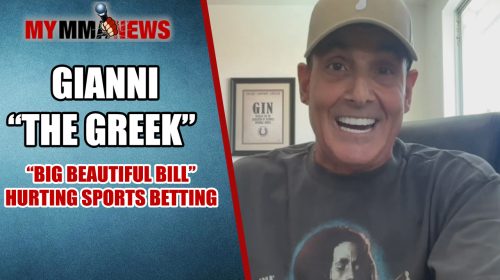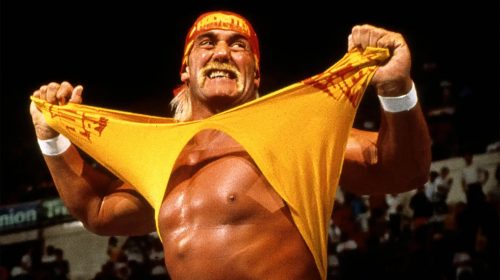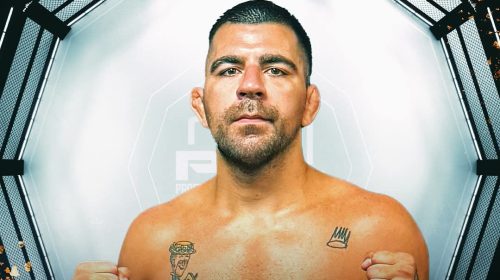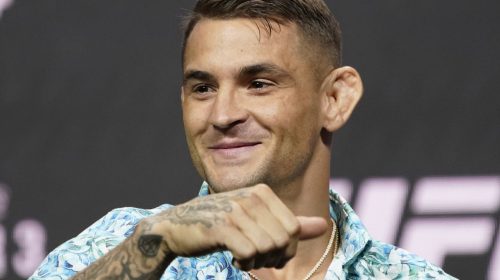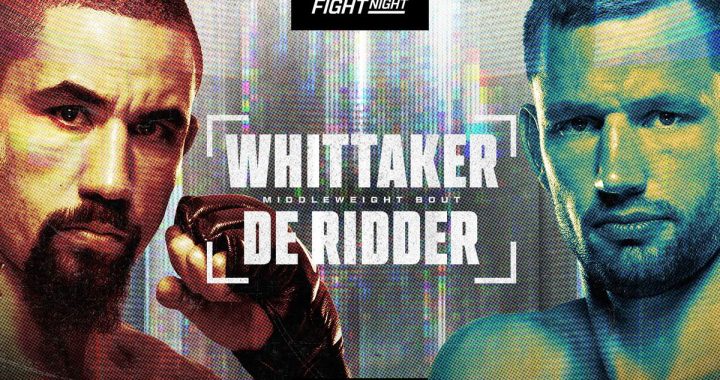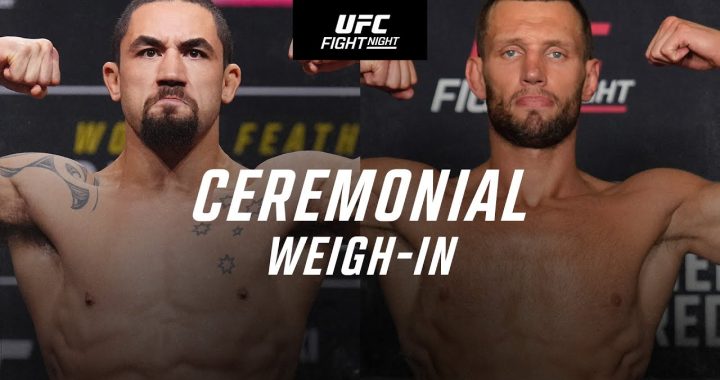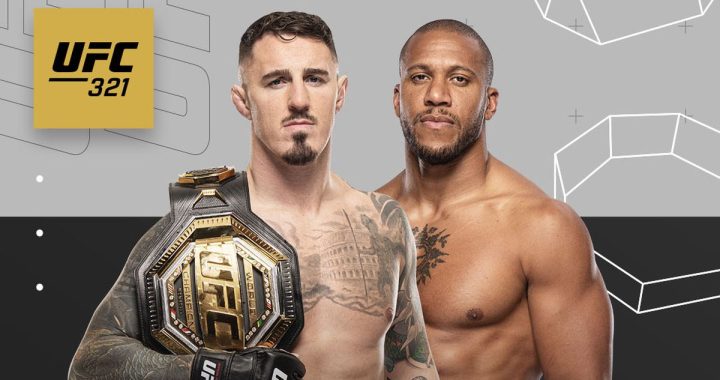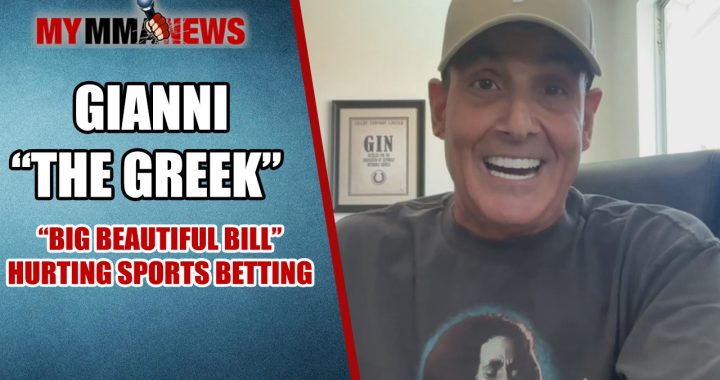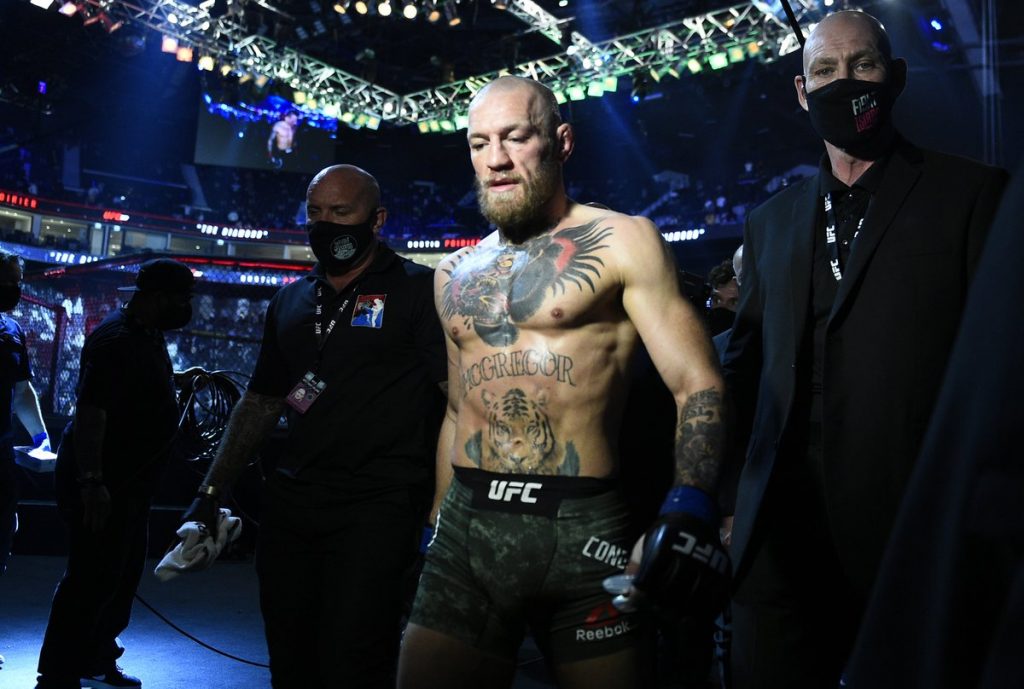
Image credit: @ufc on Twitter
The Fall of A Former Champ-Champ: A Look Into the Psychological State of Conor McGregor
The mentality of one Conor McGregor
From Mike Tyson’s infamous meltdown during the press conference of his fight with Lennox Lewis to Novak Djokovic’s freak-out during the recent Tokyo Olympics, sports has had plenty of their fair share of emotional calamities. MMA is no different.
With the events at UFC 264 ending in total disappointment for some MMA fans, various damning clips had emerged of “The Notorious” Conor McGregor. After snapping his leg, the Irishman was understandably adrenaline-filled and said some very distasteful things to his opponent, Dustin “The Diamond” Poirier.
Those comments have left an unpleasant taste in the mouths of many people, including myself. One could say that this was just “typical Conor” behavior, but many think that this time, it’s different. Something seems to have changed in the man, and not for the better. Most of us can see that clear as day, but I decided to do something slightly different with this situation.
The method to this madness
Using my educational background in psychology and the tools that I had learned, I decided to look into this deeper. It made the most sense that I tackled this project using a retrospective qualitative approach—meaning, in the most basic terms, I looked through past published material, made notes, and came to conclusions.
So, I scoured the internet, going through countless videos published over the past eight years on “The Notorious” Conor McGregor.
For this, I decided to revolve around two main issues: overconfidence and failure. I then found a couple of research papers related to those issues—more on why later. Once I was satisfied that I had all the necessary material, I got down to it.
First, I gave myself a “baseline”—starting with McGregor’s debut in UFC. I started with his debut in the UFC rather than in Cage Warriors because I believe there is much more to be seen within the last eight years. I moved through the years, his rise within the UFC up until today. From nothing to Featherweight champ to gaining the first “Champ-Champ” status, from the emergence of “Nice Conor” all the way to the mess that was UFC 264.
Throughout the process, I paid attention to the words he used, his posture, the way he acted around different people. Then, I cross-referenced those behaviors with the research papers I found to try and draw conclusions.
And, in the end, what I discovered was quite fascinating, albeit maybe not too surprising. At least maybe to those who have been paying attention.
“The Notorious” Throughout the Years
From the get-go, “The Notorious” Conor McGregor has always enjoyed his fair share of pre-fight trash-talking. It’s clear that he enjoyed every minute of it, too, except for his fight against Max Holloway, where he played none of it. To McGregor, it’s all part of the game, and he mentioned several times that he’s never carried any ill-will against his opponents, to the point where he’s surprised that they dislike him.
“I had no ill feelings towards Dustin. It was weird to me that he was like ‘I’ve never hated a guy as much as I hate this guy in my life’… To me that’s weird. I cannot hate a man that has the same dreams as me.”
– at UFC 178 Post-Fight Press Conference
And you can’t deny that those tactics don’t work against his opponents. “The Diamond” has even admitted to Conor’s mind games affecting him.
Though, if there’s another consistency seen throughout the career of “The Notorious”, it’s that he seemed to always be humble in win or defeat, for the most part. He praises Dustin Poirier after winning at UFC 178, Nick Diaz both after his loss in UFC 196 and after winning at 202.
Another thing that was crystal clear to me was McGregor’s motivations. Money was at the forefront of his mind from the moment he stepped into the Octagon. After his debut KO at UFC on FUEL TV9 in April of 2013, you can see how happy he is to finally find his way out of welfare. “You got to go through the circus to get to the bank,” Conor said in an interview with Caroline Pierce in 2014, before UFC’s return to Dublin.
Throughout most of his UFC career, “The Notorious” kept his eye on the increasing digits on his fight cheques. “We are rewarded for finishes,” he said, shoulders slumped, during the Post-Fight Press Conference at Fight Night: Shogun vs. Sonnen, despite winning, “and that’s what I’m looking for.” It’s hard to believe that his motivations lay elsewhere when he has been seen distraught after a win (against Holloway) simply because it was by decision and, therefore, lacked a finishing bonus.
This attitude and mindset with money would remain up until UFC 229 in January 2020. Then, there’s no mention of money—whether wanting it or otherwise. Though he’s never been shy about flaunting his wealth, even now. But his motivations today aren’t so clear.
“Come on, now. How much money is enough money? How much money is enough money, for fuck’s sake?”
– UFC 246 Post-Fight Press Conference
Finally, McGregor has never handled critique or any slight ‘disrespect’ aimed towards him. Here is where we tend to see the worst in the Irishman.
I should bring attention to the fact that McGregor has mentioned family in his trash-talking before. Once before—UFC 205. And during the lead-up to his championship bout against Eddie Alvarez, “The Notorious” was very violent with his words. He had told Alvarez that he’d “rip [him] up so badly,” and then there’s this nugget of a quote:
“Your kids, after this fight, are going to beg you — ‘Daddy, Daddy, please don’t go again’ …”
– UFC 205 Live Media Conference Call
Hearing that back then when there wouldn’t have been any background issues against Alvarez, honestly, shouldn’t make one surprised that he’s said similar things to Poirier. Back then, all the former champion had done was serve McGregor his own level of mental games. His attitude was the same towards Khabib Nurmagomedov during the run-up to UFC 229, saying that Khabib will be “fucking dead,” and he even spoke about “ending [Khabib’s] life”. There is a distinct similarity between the three situations, though—all of them occurred after a supposed occurrence of “disrespect” towards McGregor. It couldn’t be seen as anything else.
So, with introductions out of the way (or reintroductions, rather), let’s get into the meat of this project—just what the heck is going on with Conor McGregor?
The State of Conor McGregor
Earlier I had mentioned that I’d only be focusing on two topics—overconfidence and failure. Why only those two? At least, when it comes to the Irishman himself, that seems to be the two prevalent themes around his entire career. I had also considered that, perhaps, there could be a compounding effect caused by weight-cutting, but I’ve not found enough studies to verify that line of thought. And, despite what the MMA community believes, I’m avoiding issues of lousy coaching, yes-men, or anything else that involves other parties here and just solely focusing on Conor McGregor.
So, with that said, let’s get started.
If one were to describe “The Notorious” Conor McGregor, ‘cocky’ or ‘overconfident’ might be among the terms used. And, in all honesty, it’s hard to believe otherwise. McGregor carries an air and posture of confidence in each and every single appearance. He is up straight with his shoulders back at every media and press conference, win or lose, sometimes even with his chin up high (except Fight Night: Shogun vs. Sonnen). He has even acknowledged this himself:
“I am cocky in prediction, I am confident in preparation, but I am always humble in victory or defeat.”
– UFC 178 Post-Fight Press Conference
In the short-term, “self-enhancement” or overconfidence does seem to have positive effects like good moods, increased motivation, and productivity, as well as providing a sense of control1. Considering Conor’s attitude and performance over the first few years of his career, this seems to hold water. If I were to just briefly bring the years “before UFC”, “The Notorious” had quite a squeaky clean career from 2011 up until his first loss in the UFC in 2016, which is a reasonably long time not to suffer loss and its effects.
McGregor’s constant presence in the “winner’s circle” couldn’t do anything but bolster his confidence further, and countless studies have found persistent overconfidence isn’t good for one’s mental well-being1, 2. Other studies have found that overconfidence can be related to ‘poor social skills’, leading to displays of behaviors that are harmful to ‘positive social interactions’2. Sound familiar? Several occasions come to mind, but the most obvious would be the infamous “Bus Incident” that occurred around UFC 223.
Empathy could be considered a ‘good social skill’, but, especially during the events leading up to UFC 229, “The Notorious” seemed to lack more and more of it. Regardless of how big their name is, the obligations tied to being a UFC fighter are still obligations. Media scrums and press conferences are within the terms of a fighter’s contract, but McGregor has gone so far as to call the UFC 229 Promotion Press Conference “bullshit”. As if he’d rather be somewhere else than promoting his own fight. He doesn’t apologize for being incredibly late to press conferences and sometimes even goes as far as to attempt to physically assault his opponents on stage (see UFC 196, 202, 205, 264).
But what about failure, then? What is it about failure that can affect a man that possesses such self-confidence as McGregor? Well, it’s not so much the failure itself that’s the problem—it’s the fear of, and inability to cope with, failure.
In the most direct of explanations, the fear of failure tends to cause increased anxiety, perceived loss of control, pessimism, unstable self-esteem, and self-destructive behaviors in people3. It’s difficult to say whether we see these effects post-UFC 257, but it’s also hard to say otherwise. During the run-up to UFC 264, Conor was highly aggressive—we all could see that. What’s more, studies have found that most athletes are unable or simply do not know how to handle failure and, in general, tend not to be able to deal with their emotions post-loss4.
With the exception of his first UFC loss against Nate Diaz, “The Notorious” doesn’t seem to be able to cope with losses very efficiently, although it isn’t self-evident. Although we can clearly see that losing to Khabib left a mark on Conor, post-UFC 257 might not have been as clear. During his interview with Megan Olivi, the Irishman is fidgety—he can’t seem to sit still. He adjusts his suit frequently and fiddles with the couch’s pillow. He also avoids naming “The Diamond” outright on multiple occasions during the lead up to 264—calling Poirier “this enemy”, “this opponent”, or “that man”—an indication of emotional disturbance towards a person.
“Well, ’cause I do what I want, Ariel. I do what I want. I’m keeping this enemy in suspense of terror.”
– BT Interview with Ariel Helwani
Fear of failure is sometimes believed to also be a fear of losing one’s worth and can include a fear of “non-ego punishment”, which includes the loss of material things3—such as a championship belt. We know that “The Notorious” wants to regain his Lightweight belt, and losing at UFC 264 would fizzle his goals. When an athlete’s goals are endangered, the situation is then perceived as a threat3 which then tends to bring out aggressive behaviors in people. This could be what happened during the fight week of UFC 264.
As with most issues involving human psyches and the field of psychology in general, it is really difficult to pinpoint exactly why these behaviors have such negative effects on us, much less athletes. Some researchers suggest that overconfidence tends to be a defence mechanism for those with low self-esteem1 while others believe it to be part and parcel of narcissistic personalities2.
Failure, on the other hand, is a lot trickier to pin-down. There are many who are of the opinion that failure will lead to loss of even more than just the sporting event. Some athletes fear the fall from grace after loss, some worry that their relationships with their loved ones will change, while some of them fear that loss will mean that their coach will lose faith in them3.
Whatever the case may be, it doesn’t look very good for “The Notorious” Conor McGregor, and his actions after his recent loss could be a sign of that.
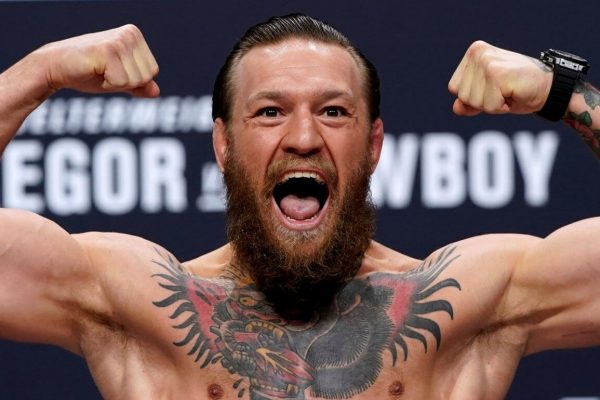
The beginning of “Crazy Conor”?
To cut a long story short, the science seems to agree with my earlier hypothesis. What we see now might result from the long-term effects of overconfidence and failure within the psyche of “The Notorious”. However, I’m also quite convinced that there is more to what happened around UFC 264 than meets the eye, which has amplified these effects, especially since it elicited such a massive, adverse reaction from McGregor.
But, ultimately, I am not (yet) a professional, board-certified psychologist. Even if I was, there is only so much one can see and determine without actually having a session or two with a person. There could be various factors that led to McGregor’s actions and behaviors during the lead-up and aftermath of UFC 264. Still, one can’t ever be too sure without actually being there to observe him and those around him—away from the “social media lens” that we’re looking through now.
However, it is clear as day that there is a deterioration of something though I’m unfortunately unable to conclude as to what that is. Whether some external pressures, internal struggles cause it, or that he only surrounds himself with “yes-men” (something I don’t personally subscribe to) remains to be seen. Or maybe his confident, tough exterior is cracking, and he’s struggling to keep the pieces from falling apart—as the science seems to say.
Hopefully, Conor McGregor or someone close to him can see that the man has apparent issues that he needs to sort out. The lack of help can lead to a further demise in his career—and possibly a worsening state of his psychological state. It would be a shame to lose a character like “The Notorious” within the world of MMA. Love him or hate him, it’s hard to deny that things just wouldn’t be the same without him.
References
1. Robin, R. W & Beer, J. S. (2001). Positive Illusions About the Self: Short-Term Benefits and Long-Term Costs, Journal of Personality and Social Psychology, 80(2), 340-352. https://doi.org/10.1037/0022-3514.80.2.340
2. Colvin, C. R., Block, J., & Funder, D. C. (1995). Overly Positive Self-Evaluations and Personality: Negative Implications for Mental Health, Journal of Personality and Social Psychology, 68(6), 1152-1162. https://doi.org/10.1037/0022-3514.68.6.1152
3. Sagar, S. S., Lavallee, D., & Spray, C. M. (2007). Why young elite athletes fear failure: Consequences of failure, Journal of Sports Sciences, 25(11), 1171-1184. https://doi.org/10.1080/02640410601040093
4. Poczwardowski, A. & Conroy, D. E. (2002). Coping Responses to Failure and Success Among Elite Athletes and Performing Artists, Journal of Applied Sport Psychology, 14(4), 313-329. https://doi.org/10.1080/10413200290103581


